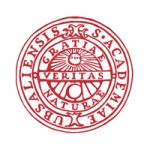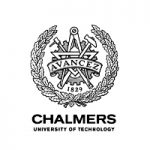
Post-doctoral fellow in Physical Chemistry
项目介绍
Lund University was founded in 1666 and is repeatedly ranked among the world’s top universities. The University has around 47 000 students and more than 8 800 staff based in Lund, Helsingborg and Malmö. We are united in our efforts to understand, explain and improve our world and the human condition.
Lund University welcomes applicants with diverse backgrounds and experiences. We regard gender equality and diversity as a strength and an asset.
Subject description
Biological materials such as plant seeds, bone, and skin present a variability of microscopic structures, which in turn determine the complex functionality for life and health. The spatial variability of microscopic structure is of high importance to better understand how mechanical loads and chemical environments affect the materials in structure and function.
In this context, small- and wide-angle X-ray diffraction with a microfocus beam is an emerging technique with strong future prospects that allows to study the spatial distribution of specific nanoscopic structural patterns. In addition, simultaneous X-ray fluorescence allows to monitor the related chemical compositions in the different spots.
As central goal, this project supervised by Associate Professor Felix Roosen-Runge aims at the characterization of macromolecular microstructure in plant materials, and related implications for optimization of extraction protocols for more sustainable food products. Proteins from plant seeds present promising opportunities to replace animal-derived food proteins with a more sustainable, healthy and affordable protein source. However, plant seeds have been selected for efficient and long-lasting storage of proteins, so that an efficient non-destructive extraction of proteins presents a considerable challenge. In this context, microscopic structure is an essential information for novel extraction pathways.
The postdoctoral researcher will be part of a collaborative network of students and researchers at the division of Physical Chemistry (http://www.physchem.lu.se) at Lund University.
This post-doctoral position is also a part of the EU cofund research project AMBER, Advanced Multiscale Biological imaging using European Research infrastructures, will address scientific and sectoral gaps in biological imaging ranging from molecular, through cellular, to tissue, organ and organism levels of organisation, and is coordinated by LINXS Institute of advanced Neutron and X-ray Science. AMBER is funded by the EU Marie Skłodowska-Curie (MSCA) COFUND scheme. Around 15 postdocs will be recruited in the Second call 2024, with each fellowship lasting 36 months.
AMBER has six core partners: Lund University/MAX IV, Sweden, the European Spallation Source (ESS), Sweden, the European Molecular Biology Laboratory (EMBL), Institut Laue-Langevin (ILL), France, the International Institute of Molecular Mechanisms and Machines, (IMOL), Poland, and the Leicester Institute of Structural and Chemical Biology, United Kingdom.
Your work will include clinical and biomedical projects. It will also include technique development work aimed at combining imaging techniques and data analysis to provide a more integrated picture of life processes in the context of health and disease. To be a postdoc fellow at the AMBER programme you will get unprecedented medical, biological, and methodological capabilities, with a profound potential impact for Europe’s next generation of research and researchers. When you have completed the AMBER programme you will be extraordinarily well equipped to further your career in academia, at infrastructures, in the health and MedTech sectors, and beyond.
For more information about the total announced post-doctoral positions within in the AMBER co-fund project please visit:
The interviews will start in November. For more information about AMBER, application and evaluation process etc please visit:
Work duties
The main duties involved in a post-doctoral position is to conduct research. Teaching may also be included, but up to no more than 20% of working hours. The position shall include the opportunity for three weeks of training in higher education teaching and learning.
In this postdoctoral project, we focus on spatial variation of microscopic structure in plant seeds by using combinations of scanning X-ray scattering with scanning X-ray fluorescence, X-ray tomography, and optical and electron microscopy.
Specific tasks will be preparation and conductance of experimental campaigns at synchrotron facilities such as MAX IV (Lund) or ESRF (Grenoble, France), the establishment of a suitable data analysis framework (python-based) targeted at the measured big data sets, and subsequent scientific analysis and interpretation, also involving machine-learning approaches.
To develop and benchmark the analysis, we will on the one hand aim to employ available frameworks and python modules as much as reasonable, and on the other hand use already measured data sets on biological materials such as pea seeds, bone, teeth or skin. The postdoctoral researcher thus will have the opportunity to experience the broad applicability of the methodology hands-on.
The research group has a deep expertise and a strong track record with large-scale facility research at synchrotron and neutron facilities, such as MAX IV and ESS in Lund. The postdoctoral researcher will have the opportunity to experience these unique and world-leading scientific environments during experimental campaigns, and strengthen general soft skills by co-managing these team-based experimental campaigns and writing competitive proposals for measurement time. The research project will develop expertise in data analysis and scientific computing as a key skill in the era of big data sets.
The work will be performed in a team of PhD and project students, postdoctoral researchers and the supervisor, focused on the optimization of protein extraction for subsequent tunable formation of protein gels. We aim for an interactive and team-based research program, in which each member is encouraged to actively contribute with ideas and competence to a common scientific progress. The postdoctoral researcher will have the opportunity to participate in national and international workshops and conferences – not only to present and disseminate the research, but also to strengthen the personal network with other researchers and collaborators.
We aim for the postdoctoral researcher to grow as an active and independent researcher at the interdisciplinary boundary between biological and soft matter and synchrotron science.
All applicants are strongly encouraged to contact the supervisor Felix Roosen-Runge for further information on the research design of the postdoctoral project.
Qualification requirements
Appointment to a post-doctoral position requires that the applicant has a PhD, or an international degree deemed equivalent to a PhD, within the subject of the position, completed no more than three years before the date of employment decision. Under special circumstances, the doctoral degree can have been completed earlier.
Minimum requirements are:
- Very good oral and written proficiency in English.
- candidate needs to have a maximum 8 years after a doctoral degree (PhD), as required by the project Grant Agreement signed with the European Commission,
- at least one original publication in a peer-reviewed journal,
- a background in the relevant methods,
- a complete application package submitted through the AMBER portal (including CV and detailed research plan), and finally,
- strict compliance with the MSCA mobility rule that the researcher must not have resided or carried out his/her main activity (work, studies, etc.) in the host organisation’s country for more than twelve months in the three years immediately prior to the call deadline.
Each project will have additional specific requirements that candidates have to fulfill, be sure to check what these are before you apply.
Assessment criteria and other qualifications
This is a career development position primarily focused on research. The position is intended as an initial step in a career, and the assessment of the applicants will primarily be based on their research qualifications and potential as researchers.
Particular emphasis will be placed on research skills within the subject.
For appointments to a post-doctoral position, the following shall form the assessment criteria:
- A good ability to develop and conduct high quality research.
- Teaching skills.
Necessary qualifications required for the postdoctoral project:
- experience with X-ray diffraction at large-scale facilities in experiment and theoretical description
- experience with analysis of larger data sets arising from scanning or time-resolved X-ray scattering
- experience with scientific scripting in python or matlab for data analysis
- experience with collaborative work at large-scale facilities during experiments and subsequent data analysis
Additional merits:
- proven experience of scientific writing as first author as well as contributing author in collaborations
- experience with mathematical modeling of experimental data
- experience in and motivation to interdisciplinary work
- communication and presentation skills
Consideration will also be given to good collaborative skills, drive and independence, and how the applicant’s experience and skills complement and strengthen ongoing research within the department, and how they stand to contribute to its future development.
Terms of employment
This is a full-time, fixed-term employment of a maximum of 3 years. The period of employment is determined in accordance with the agreement “Avtal om tidsbegränsad anställning som postdoktor” (“Agreement on fixed-term employment as a post-doctoral fellow”) between Lund University, SACO-S and OFR/S, dated 1st February 2022.
Instructions on how to apply
For more information and documents/templates/europass link, please visit:
Incomplete applications will not be considered. Please make sure that you upload all the required documents specified below i-ix.
If you are interested in applying for more than one position (maximum 3) you must be prepared to make a full application for each individual position.
Applications shall be written in English and all documents shall be in pdf format:
i) A Curriculum Vitae (europass format). Your CV shall be exported to a PDF file that you use in your application.
ii) A detailed research plan including any foreseen secondments (candidates can suggest more than the mandated one, they can also suggest their own secondments), schools and conferences as well as a templated budget plan. (as concise as possible, recommended about 3-5 pages, but at an absolute maximum 10 pages). The research plan should include a half page of summary/abstract.
Additional texts to include in the PDF are:
iii) Letter of Commitment from any additional secondment partners the candidate wishes to bring
iv) Evidence of English proficiency (minimum CEFR B22, also checked at interview).
v) A draft Individual Career Development Plan (ICDP).
vi) Two reference letters.
vii) Any additional documents to support the application.
viii) Ethical questionnaire (HE ethics checklist + research ethics commitment)
In addition, the application will require:
ix) Any candidate can apply for maximum of 3 positions. You must apply for each individual position. A list with order of preference of positions should be sent to the AMBER management. amber@linxs.se
联系方式
电话: +46 (0)46 222 0000相关项目推荐
KD博士实时收录全球顶尖院校的博士项目,总有一个项目等着你!





